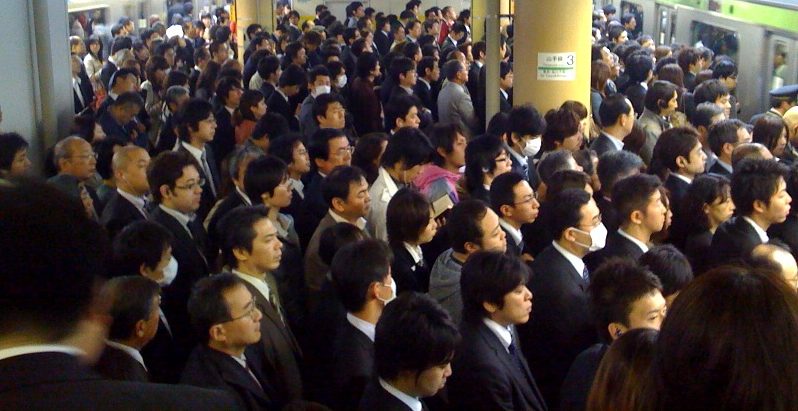Another high-profile case of “karoshi” – death from overwork – rocked Japan last week when national broadcaster NHK announced that the death of a 31-year-old journalist four years earlier had been ruled “karoshi” by the Labor Standards Inspection Office. NHK said said that the company had overhauled working styles as a result.
Here are some of the key statistics related to overwork and karoshi.



Though Prime Minister Shinzo Abe’s administration has tried to encourage companies to cut down on overtime, there is no evidence yet that any of their measures have worked; and let’s not even talk about Premium Friday.
This BBC article suggests that inefficient ways of working are at the root of long working hours and overwork. The Japanese government has tried to address some of this part of the problem by encouraging companies to let employees work on the go or work from home.
Furthermore, Japan’s labor law still allows unions to sign contracts with companies which permit the companies’ staff to work for a potentially unlimited amount of overtime in “extraordinary circumstances”, although Japan’s biggest business lobby and labor group agreed earlier this year to cap that at 100 hours overtime in a month, or an average of 80 hours overtime for up to 6 months.
Those issues, however, are only part of the problem.
On a more fundamental level, the fact remains that working long hours is still seen as a virtue in Japan. I remember participating in a party with some Japanese about my age. One male, an analyst, spoke about staying up until 2 a.m. (when the Nikkei publishes the morning articles online) so he could check to see if there was any news relating to his areas of coverage; far from being a complaint about overwork, this was a boastful point of pride.
Changing this value system will require grassroots change or the concerted efforts of a few, outspoken companies.
Explore more of our Japan by the Numbers series:
[posts-by-tag tags=”Japan by the numbers” number = “5”]
Eleanor worked for five years as a correspondent in the Tokyo bureau of The Wall Street Journal covering economy, finance and Japan's butter shortage. She is a graduate of Georgetown University, and her favorite animal is a capybara.























You must be logged in to post a comment.